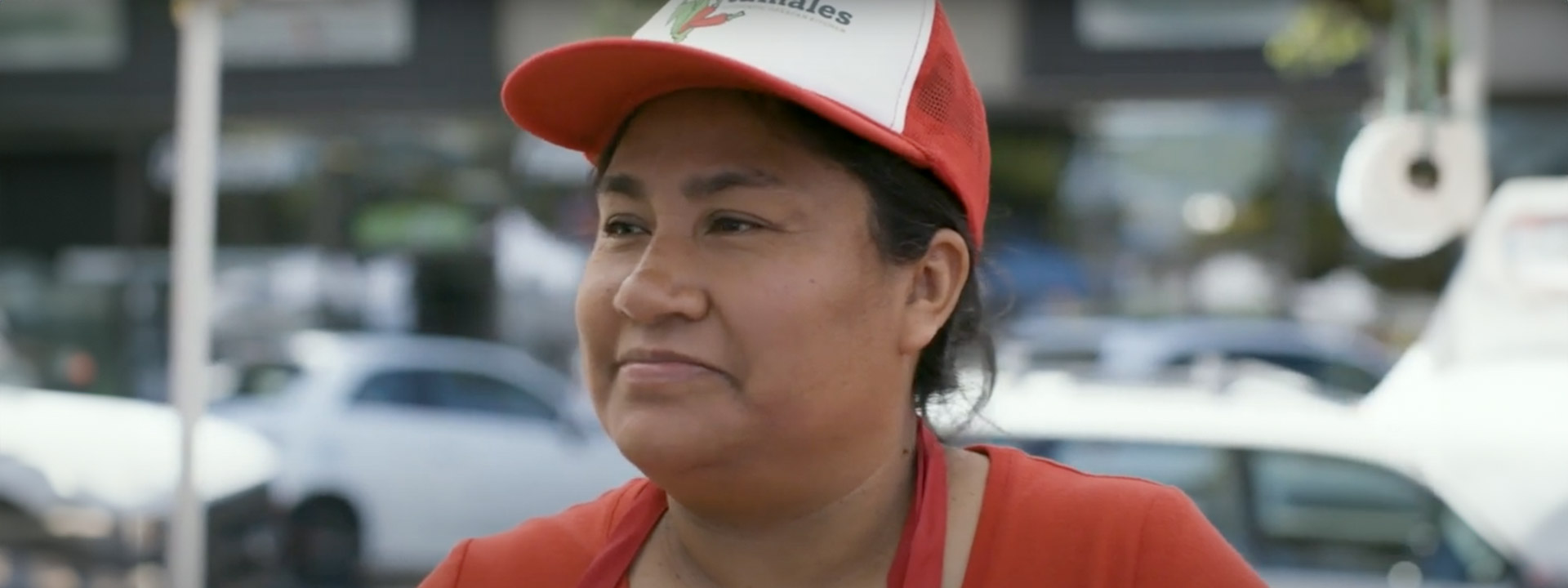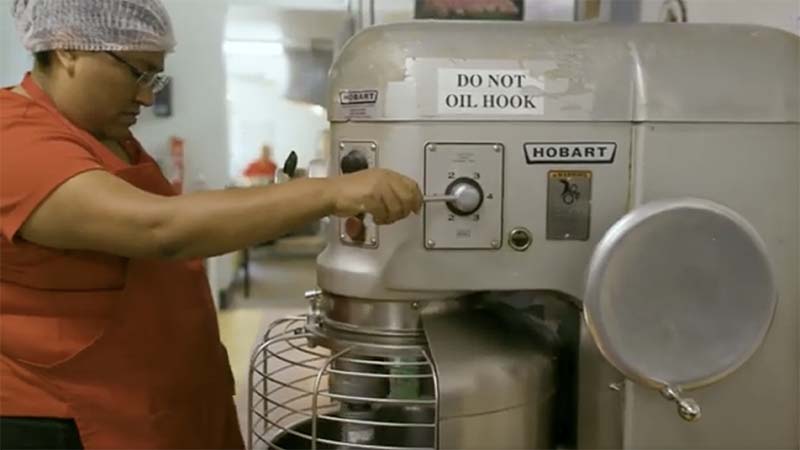

Sara’s Tamales in Portland, Oregon, is a small business built on a big dream — one that seemed far-fetched before owner Sara Rodriguez launched her first tamale cart.
“When you don't have the opportunities, the money and the help, you feel that you are not capable of achieving anything,” she told us as she ladled a hearty tamale filling into purple dough, a recipe she learned from her family in Mexico and has since perfected.
BIPOC-owned businesses have long been an essential part of the U.S. economy. They drive job creation, support their communities and are growing faster than non-BIPOC-owned businesses.¹
Even so, BIPOC business owners are at a disadvantage in terms of gaining access to capital and credit. According to a survey conducted by Federal Reserve Banks across 12 major U.S. metro areas, Black- and Hispanic-owned businesses with high credit scores are only half as likely as their white counterparts to receive financing, despite carrying less debt overall.²
The pandemic only exacerbated the issue, forcing many BIPOC business owners to close shop. A report by the National Bureau of Economic Research³ found that 41 percent of Black-owned businesses shut down because of COVID-19 compared to just 17 percent of white-owned businesses. Business owners of color were also less satisfied than white business owners with their financial services provider during the pandemic.² In fact, most BIPOC business owners did not have their financing needs met, whereas half of white-owned businesses did.
“They didn’t want to lend us any money,” Rodriguez said about two financial institutions she and her husband initially approached to start a tamale business. At the time, job opportunities were scarce and putting food on the table for their family became increasingly difficult.
Visa, the Ford Foundation, and Filene Research Institute took aim at this issue with the Reaching Minority Households Incubator, a program intended to support families like the Rodriguezes. The program created a testing environment with 40 financial institutions across the U.S. and Canada. Over 18-months, the incubator issued more than 58,000 loans totaling roughly $84 million and impacting more than 18,000 households, including that of the Rodriguez family.
Through the program, Portland’s Point West Credit Union, a participating financial institution, offered Rodriguez a $500 loan, which allowed her to buy a business license, food and the supplies she needed to start a modest tamale cart. While her first customers trickled in by chance, word quickly spread. Sara’s Tamales was in high demand, and Rodriguez soon needed more capital to grow her business.

Through the incubator, Rodriguez received a second loan from Point West. With that, she bought a car so she could make deliveries to grocery stores. She also invested in marketing her business and improving its packaging and design.
The impact of loans on small businesses
Sara’s story is one of millions across the country — stories of aspiring entrepreneurs who lack access to the kinds of mainstream financial services that can set a fledgling business up for success. Visa gave $1.2 million to help financial institutions like Point West reach more minority households with proven products and services that cater to their needs.
“The Reaching Minority Households Incubator showed us that with the right focus and product mix, financial institutions can effectively reach underbanked communities and do so sustainably,” said Bill Sheedy, senior advisor to Visa's Chairman and CEO.
Participating financial institutions could also share best practices and case studies through the incubator. “Financial institutions are at the front lines of changing the disparity in access to basic financial services for minority households,” said George Hofheimer, chief knowledge officer at Filene. “Providing products like those tested in the incubator can be a win-win-win for the customer, financial institution and community.”
When we met with Sara, she sat at the dinner table with her family. Her four children gathered around her. She reflected on how proud she is to see her business grow and provide her family with a stable financial life — and what a difference having access to capital has made in making it so. Sara’s Tamales has helped the Rodriguezes buy their first home and put them on the path to opening their first restaurant.
“This program really helped us,” Rodriguez said. “We could do what we did because of the loan. It meant everything to us.”
- https://www.sbc.senate.gov/public/index.cfm/minorityentrepreneurs#:~:text=Over%20the%20last%2010%20years,totaling%20close%20to%20%24700%20billion.
- https://www.mbda.gov/sites/default/files/2021-09/Small%20Business%20Credit%20Survey%20-2021%20Report%20on%20Firms%20Owned%20by%20People%20of%20Color.pdf
- https://www.nber.org/system/files/working_papers/w27309/w27309.pdf